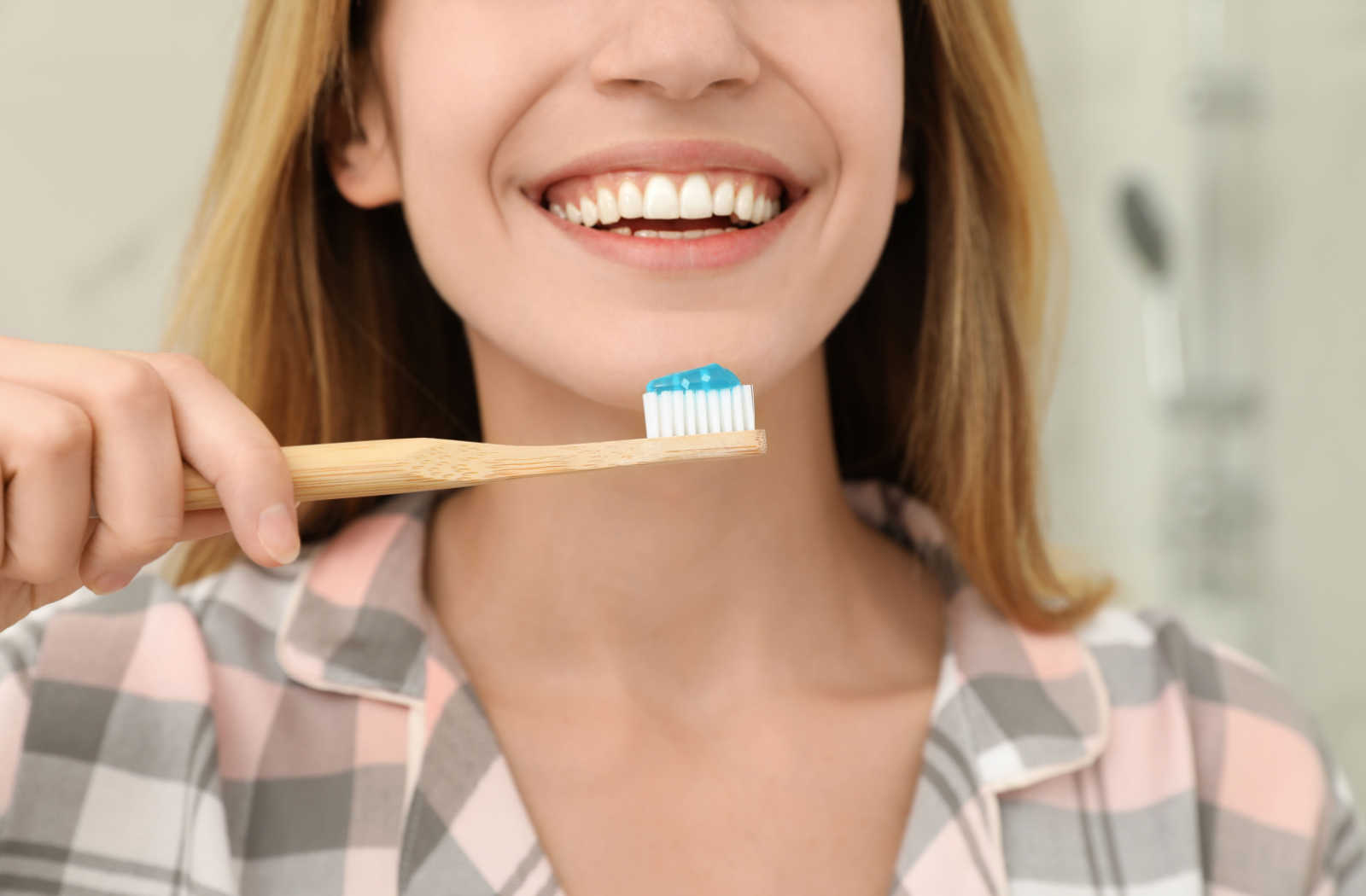Fluoride has many proven benefits for your teeth—but can it also contribute to a whiter smile? Fluoride itself is not a tooth-whitening agent, but it can help to strengthen enamel and prevent tooth decay, which can contribute to a brighter smile.
Tooth whitening products are designed to lighten the natural colour of your teeth. Fluoride does not have this type of bleaching effect. However, some types of toothpaste and dental treatments may combine fluoride with other whitening agents to provide the dual benefit of preventing tooth decay while whitening.
Does Fluoride Treatment Whiten Teeth?
While fluoride alone cannot whiten your teeth, it can be a useful part of an overall dental care routine that includes other whitening products or treatments. It is always best to consult with your dentist to determine the most effective whitening options for your specific needs.
What is Fluoride?
Fluoride is a naturally occurring mineral found in soil, water, and various foods. Fluoride has been proven to have a positive impact on oral health, as it can help to prevent tooth decay and strengthen tooth enamel.
Good oral care, including the use of a fluoridated toothpaste, helps to prevent plaque from building up and contributing to decay and tooth discolouration.
Is Fluoride Good for Teeth?
Yes, fluoride is essential for dental health. It strengthens enamel, prevents decay, and helps maintain a bright smile by keeping teeth strong and resilient against plaque.
Fluoride Treatment
Fluoride treatments, often applied during dental check-ups, strengthen enamel and protect against decay. While they don’t whiten teeth, they help maintain a bright, healthy smile by preventing decay and enamel wear.
Sources of Fluoride
Fluoride is commonly found in public water supplies. Many communities practice water fluoridation, where they adjust the amount of fluoride in their community water supply to optimal levels that protect teeth from decay. The City of Calgary discontinued their water fluoridation program in 2011. However, Calgarians can expect to see fluoride re-introduced to the public water supply by 2024.
In the meantime, Calgarians should be sure to choose dental hygiene products like toothpaste and mouthwash that contain fluoride.
Fluoride Toothpaste
Using fluoride toothpaste daily helps strengthen enamel, prevent decay, and reduce plaque buildup, which can cause discoloration. For whitening, pair fluoride toothpaste with products specifically designed to lighten teeth.
What Causes Tooth Discolouration?
Despite what the toothpaste commercials say, perfectly white teeth are usually not the default. The natural colour of your teeth will likely exist within a range of light greyish to yellow shades. Your teeth may also continue to change colour as you get older. As we age, the enamel in our teeth naturally wears down, which can expose the yellowish dentin underneath.
While there are natural causes for tooth discolouration, other lifestyle factors that can contribute to stains developing on the surface of your teeth include:
- Food & drink: Consuming certain foods and drinks, such as coffee, red wine, and dark-coloured berries can stain your teeth over time.
- Poor dental hygiene: Not brushing or flossing regularly can lead to a build-up of plaque and tartar on your teeth, which can cause discolouration.
- Tobacco use: Smoking or using other tobacco products can contribute to teeth yellowing.
- Medication: Certain medications, including high-pressure medications and antihistamines, can cause tooth discolouration.

How to Whiten Your Teeth
There are many ways to achieve a whiter smile—but not all methods of teeth whitening are created equal. It is always best to consult with your dentist before trying any whitening treatment to avoid common side effects like tooth sensitivity and gum irritation.
Professional In-Office Whitening Treatment
The safest way to achieve a whiter, brighter smile is under the supervision of your dentist. While treatments will vary from clinic to clinic, your dentist’s office most likely provides an in-office teeth whitening treatment.
At Ti Dental, we offer our patients Zoom 2! in-office whitening. This treatment uses a light-activated hydrogen peroxide gel to remove surface stains and whiten teeth in just one hour. This treatment is used in conjunction with a fluoride treatment to protect and remineralize your teeth.
At-Home Whitening Treatments
The toothpaste aisle at your local drug store is also home to a wide range of at-home whitening treatments, ranging from whitening strips to brush-on gels and toothpastes. These products typically contain peroxide-based bleaching agents to help remove surface stains from your teeth.
In most cases, you won’t see the same results from an at-home treatment that you can expect from professional teeth whitening treatments. Most at-home treatments require multiple sessions to see results.
Risks of Teeth Whitening
Any type of teeth bleaching treatment can cause tooth sensitivity and make it particularly uncomfortable to consume hot or cold foods and drinks. The Canadian Dental Association advises that bleaching treatments should only be done under the care of a dentist.
In addition to sensitivity, some dental whitening products can cause gum irritation. In some cases, you may also experience uneven results, as some teeth may not respond as well to whitening treatments as others.
Taking Care of Your Smile
To ensure optimal whitening results and avoid tooth sensitivity, you should always consult with your dentist prior to trying any type of tooth whitening treatment. Maintaining good oral hygiene habits like brushing and flossing can help to prevent further tooth discolouration and keep your smile white.
While fluoride may not have specific teeth-whitening properties, using oral hygiene products that contain fluoride is a great way to prevent discolouration caused by plaque or tartar buildup and prevent tooth sensitivity during whitening treatments.
Ask your dentist about fluoride treatment next time you are in the clinic.








